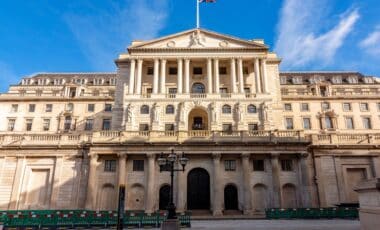Millions of UK workers are set to see their pay rise from April 1, as the government implements significant increases to both the National Minimum Wage (NMW) and National Living Wage (NLW). The changes are expected to boost wages for over three million employees, with full-time workers earning up to £1,400 more per year. Additionally, an estimated four million more workers could benefit from knock-on effects, as businesses adjust wages to maintain pay differences between job roles.
While the government says the increases are aimed at helping workers cope with rising living costs, some business leaders have criticised the move, warning that higher wages could lead to job cuts, reduced hiring, and rising prices for consumers. With just weeks to go before the changes take effect, both workers and employers are preparing for the impact.
New Minimum Wage Rates from April 2025
The new wage rates, which will take effect from April 1, 2025, represent one of the biggest increases in recent years. Below is a breakdown of the upcoming changes:
| Category | Current Rate (£/hour) | New Rate (£/hour) | Annual Increase for Full-Time Workers (40 hours/week) |
|---|---|---|---|
| National Living Wage (21 and over) | £11.44 | £12.21 | £1,400 |
| National Minimum Wage (18-20 years old) | £8.60 | £10.00 | £2,500 |
| Apprentices & 16-17-year-olds | £6.40 | £7.55 | £1,200 |
The biggest changes will be felt by younger workers and apprentices, who will see significant percentage increases in their hourly wages. For the first time, the government has committed to reducing the gap between younger and older workers, with the long-term goal of creating a single minimum wage rate for all adults.
How Workers Will Benefit
For millions of workers, this pay rise will provide a much-needed financial boost, particularly in the wake of rising inflation and increasing living costs. With everyday expenses such as rent, food, and energy bills continuing to climb, higher wages could ease some of the financial pressures facing lower-income households.
Government ministers have welcomed the increase, arguing that it will put more money in people’s pockets and boost consumer spending. Employment Rights Minister Justin Madders said:
“Economic growth only matters if working people feel the benefits. This will be a huge pay bump for millions, putting more money in their pockets and boosting the high street.”
Similarly, Chancellor Rachel Reeves added:
“We promised a genuine living wage, and we are delivering. This pay rise will help hardworking Brits cope with the cost of living.”
Trade unions have also expressed strong support for the increase. TUC boss Paul Nowak described the move as a lifeline for low-paid workers, particularly as some people have been forced to skip meals or cut back on essentials just to make ends meet.
Concerns from Businesses and Employers
While the wage increases have been welcomed by workers, many business owners and industry leaders have expressed concern about the rising costs they will face. Some companies—particularly those in retail, hospitality, and small businesses—warn that higher wages, combined with increasing employer National Insurance contributions, could put serious financial strain on businesses.
Some of the key concerns raised by business groups include:
- Reduced hiring – Some companies may cut back on recruitment or reduce working hours to offset higher wage costs.
- Price increases – To compensate for higher payroll expenses, businesses may raise prices, which could contribute to inflation.
- Potential job losses – Some struggling businesses, particularly small independent shops and restaurants, may be unable to absorb the extra costs, leading to job cuts or closures.
The British Retail Consortium (BRC) has warned that while higher wages are good for workers, they could push struggling businesses to the brink, especially at a time when high street retailers are already facing economic challenges. Some employers have described the combined impact of wage rises and tax increases as a “jobs tax”, making it harder for businesses to invest, expand, or stay afloat.
What Happens Next?
With the new minimum wage rates taking effect on April 1, 2025, businesses must update their payroll systems and ensure all employees receive at least the legal minimum. Employers who fail to comply with the new rates could face penalties and be named on the government’s list of minimum wage offenders.
For workers, the increase means higher earnings and greater financial stability, but for businesses, it presents a challenge in managing costs. The coming months will determine whether this historic wage increase will boost economic growth or place further strain on struggling businesses.









